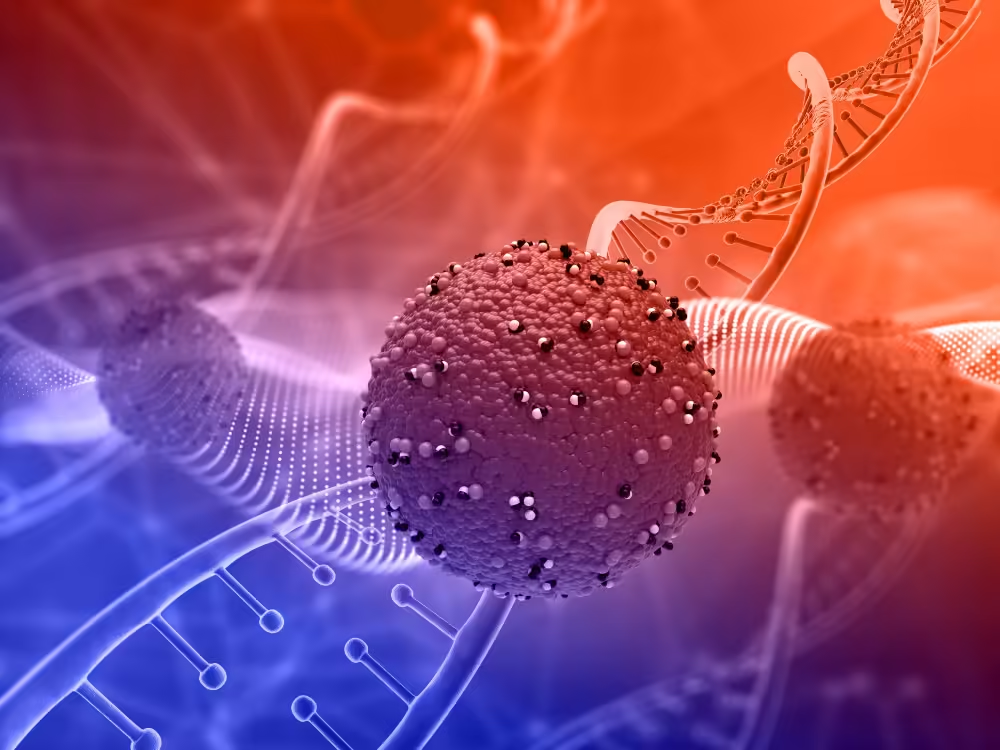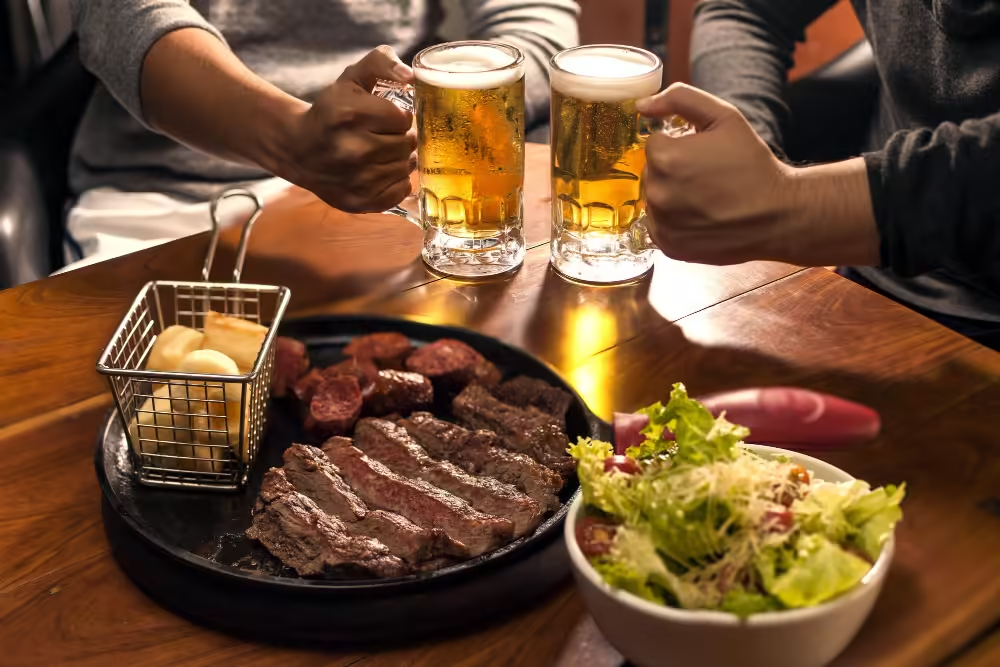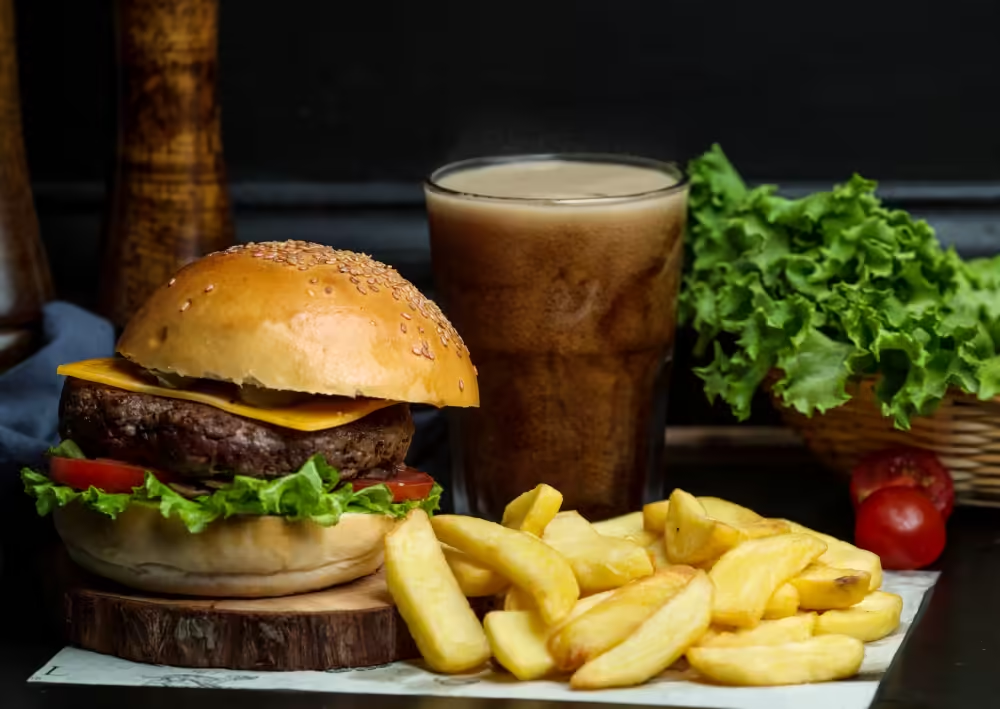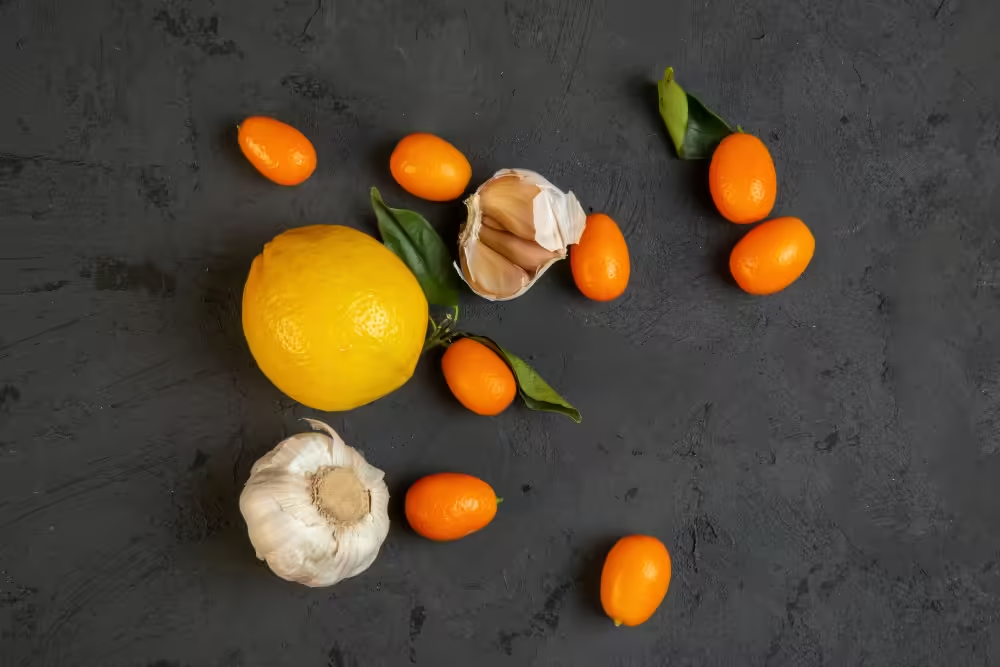Today, we’re taking a closer look at a topic that affects us all: cancer. With rates seemingly on the rise and more young people being diagnosed than ever before, it’s crucial to understand how what we eat can play a role in either raising or lowering our risk of this disease.
What is a cancer disease?
Cancer is a complex and often mysterious disease that can affect any part of the body. It occurs when abnormal cells divide uncontrollably, forming tumors that can invade nearby tissues and spread to other body parts.
These rogue cells disrupt the normal functioning of organs, leading to a range of symptoms depending on the type and stage of cancer.

While some risk factors for cancer, such as genetics and environmental exposures, are beyond our control, lifestyle choices like diet play a significant role in influencing our susceptibility to this disease.
By understanding how certain foods impact our bodies at a cellular level, we can make informed decisions about what we eat to potentially reduce our risk of developing cancer.
Why are so many young people getting cancer?
It’s a concerning trend that cancer is increasingly affecting young people. Researchers attribute this rise to various factors, including lifestyle choices and environmental influences. With the prevalence of processed foods high in sugars and fats, coupled with sedentary lifestyles, it’s no wonder that cancer rates are on the rise among younger individuals.
Moreover, exposure to harmful chemicals in everyday products and pollution can also play a role in the development of cancer at a younger age.
Also read: What is food measuring and how it helps in weight loss
Genetic predispositions cannot be discounted either; some individuals may be more genetically prone to developing certain types of cancer early on. Addressing these multifaceted reasons behind the increase in cancer among young people is crucial for promoting better health outcomes across generations.
Does food raise cancer?
Many people wonder if the foods we eat can actually raise our risk of developing cancer. While genetics and environmental factors play a role, research suggests that our diet can also have a significant impact on our overall health.
Certain foods like red meat and processed meats have been linked to an increased risk of cancer due to their high levels of saturated fats and additives. Likewise, alcohol consumption has been associated with various types of cancer, including breast and liver cancer.
Carcinogenic by-products found in salted fish may pose a threat when consumed regularly. Non-diet soda, loaded with sugar and artificial sweeteners, could also potentially contribute to cancer development over time.
6 foods that raise cancer risk
Cancer is a word that strikes fear into the hearts of many. With rates seemingly on the rise, it’s natural to want to understand what factors may contribute to this concerning trend. One such factor that has been studied extensively is diet.
1. Red meat
When it comes to cancer risk, the consumption of red meat has been a topic of concern in recent years. Red meat includes beef, lamb, and pork – popular food choices. However, studies have shown a potential link between high intake of red meat and increased cancer risk.
The issue with red meat lies in its heme iron content and saturated fats which can promote inflammation within the body. Additionally, when cooked at high temperatures or grilled over an open flame, compounds called heterocyclic amines (HCAs) and polycyclic aromatic hydrocarbons (PAHs) are formed – both known carcinogens.
While enjoying a steak or burger occasionally is unlikely to cause harm, it’s essential to balance your diet with other healthier protein options like fish or plant-based proteins. Moderation is key when it comes to consuming red meat for those looking to reduce their cancer risk.
2. Processed meat
Processed meat, such as bacon, sausage, and deli meats, is a convenient option for many people due to its long shelf life and quick preparation. However, the high levels of salt and preservatives used in processing can increase cancer risk.
When these meats are cooked at high temperatures, they can form carcinogenic compounds like nitrosamines.
Regular consumption of processed meats has been linked to an increased risk of colorectal cancer. The World Health Organization classifies processed meat as a Group 1 carcinogen, putting it in the same category as tobacco smoking and asbestos exposure.

The more you drink and the longer you’ve been drinking consistently with high intake of processed meat, the higher your chances may be for developing these cancers.
To reduce your cancer risk, consider swapping out processed meats for healthier alternatives like lean cuts of unprocessed meat or plant-based proteins.
Also read: How harmful can ultra-processed foods be for us
3. Alcohol
Alcohol, a common beverage enjoyed by many, has been linked to an increased risk of cancer. The ethanol in alcohol can be converted into a toxic chemical called acetaldehyde, which damages DNA and proteins in the body. This damage can lead to the development of cancerous cells over time.
Regular consumption of alcohol is associated with an elevated risk of various types of cancers, including liver, breast, and esophageal cancer.
Opting for non-alcoholic beverages or limiting your consumption can have positive effects on your overall health and well-being in the long run.
4. Carcinogenic by-products [SaltedFish]
Salted fish, a delicacy in many cultures, has been linked to an increased risk of cancer due to the formation of carcinogenic by-products during the preservation process. When salt is used to cure fish, it can react with proteins and form compounds like nitrosamines, which are known carcinogens.
These harmful substances have been found to damage DNA and potentially lead to cell mutations that increase the likelihood of cancer development.
While salted fish can be flavorful and satisfying, it’s essential to be mindful of how often it is consumed and consider alternative cooking methods or lower sodium options. Individuals can make informed decisions about their health and well-being by being aware of potential risks associated with certain food practices.
5. Non-diet soda
Ah, the tempting fizz of a soda on a hot day. But did you know that those sugary soft drinks could be increasing your cancer risk? Non-diet sodas are packed with high fructose corn syrup and artificial sweeteners that can wreak havoc on your health over time.
These beverages not only contribute to weight gain and obesity but also contain caramel coloring, a potential carcinogen. The combination of sugar, additives, and preservatives in non-diet sodas may create an inflammatory environment in the body, which can promote cancer growth.
Regular consumption of non-diet soda has been linked to an increased risk of various cancers such as pancreatic cancer, colorectal cancer, and even breast cancer.

To lower your cancer risk, it’s important to limit your intake of fast food and opt for healthier alternatives whenever possible.
6. Fast food
Fast food may be convenient, but it comes with a cost. Most fast foods are high in unhealthy fats, sugars, and calories that offer little to no nutritional value. These foods often contain additives and preservatives that can be harmful to our health in the long run.
Regular consumption of fast food has been linked to an increased risk of various health issues, including cancer. The high levels of saturated fats found in many fast food items have been associated with an elevated risk of certain types of cancer.
Cooking methods used in preparing fast food can also contribute to carcinogen formation. Foods cooked at high temperatures or fried can produce harmful compounds that may promote cancer development over time.
How does obesity contribute to cancer?
Obesity is a significant risk factor for cancer, with studies showing that excess body fat can lead to chronic inflammation and hormonal imbalances that promote tumor growth. The extra weight can also disrupt the body’s ability to regulate insulin levels, increasing the risk of developing certain types of cancers such as breast, colon, and kidney.

Obesity is associated with higher levels of oxidative stress in the body, potentially damaging DNA and increasing the likelihood of mutations that could lead to cancer development.
Moreover, fat cells produce estrogen which has been linked to an increased risk of hormone-related cancers like endometrial and ovarian cancer.
The rise in food bloggers and influencers has led to people experiencing more frequent food cravings beyond their regular eating habits.
6 Foods that reduce cancer risk
When it comes to reducing the risk of cancer, your diet plays a crucial role. Including certain foods in your meals can help lower the chances of developing this disease.
Tomatoes are not only delicious but also packed with lycopene, an antioxidant known for its cancer-fighting properties. Citrus fruits like oranges and lemons are rich in vitamin C, which boosts the immune system and helps prevent cell damage.
Garlic is not just a flavor enhancer; it contains sulfur compounds that have been linked to reducing the risk of certain cancers. Berries such as blueberries and strawberries are loaded with antioxidants that protect cells from damage.
Whole grains like brown rice and quinoa provide fiber and essential nutrients that support overall health. Leafy greens such as spinach and kale are excellent sources of vitamins, minerals, and antioxidants that promote cellular health.
1. Tomatoes
Tomatoes are not just a delicious addition to salads and sauces; they also have cancer-fighting properties. These vibrant red fruits are rich in lycopene, a powerful antioxidant that has been linked to lower risk of certain types of cancer, such as prostate and breast cancer.
In addition to lycopene, tomatoes contain vitamins A and C, as well as potassium and folate, which all play a role in maintaining overall health and reducing the risk of developing cancer.
Including tomatoes in your diet can be as simple as slicing them up for a fresh Caprese salad or roasting them with olive oil and herbs for a flavorful side dish. Whether eaten raw or cooked, tomatoes pack a nutritious punch that can contribute to lowering your cancer risk.
2. Citrus fruits
Citrus fruits are not just delicious; they also pack a powerful punch when it comes to lowering cancer risk. These vibrant fruits like oranges, lemons, and grapefruits are loaded with antioxidants that help protect cells from damage that can lead to cancer. Plus, their high vitamin C content boosts the immune system, aiding in the fight against cancerous cells.
 The compounds found in citrus fruits have been shown to reduce inflammation and inhibit the growth of tumors. They also contain limonoids and flavonoids which have anti-cancer properties. Adding a squeeze of lemon or orange to your water or salad is an easy way to incorporate these cancer-fighting fruits into your diet.
The compounds found in citrus fruits have been shown to reduce inflammation and inhibit the growth of tumors. They also contain limonoids and flavonoids which have anti-cancer properties. Adding a squeeze of lemon or orange to your water or salad is an easy way to incorporate these cancer-fighting fruits into your diet.
3. Garlic
Garlic, known for its pungent aroma and distinctive flavor, is not just a staple in many culinary dishes but also packs a powerful punch when it comes to potentially lowering cancer risk. This small bulb contains compounds like allicin, which has been studied for its potential anti-cancer properties.
Studies suggest that garlic may help reduce the risk of certain cancers by inhibiting the formation of cancer-causing substances in the body. Additionally, garlic has been linked to slowing down the growth of cancer cells and even promoting their self-destruction through apoptosis.
4. Berries
Berries are not only delicious but also packed with antioxidants that can help lower cancer risk. These vibrant fruits, such as blueberries, strawberries, and raspberries, contain compounds like anthocyanins and ellagic acid that have been shown to fight against oxidative stress in the body.
Antioxidants found in berries work to neutralize free radicals, which are unstable molecules that can damage cells and potentially lead to cancer development. By including a variety of berries in your diet, you can benefit from their anti-inflammatory properties and protective effects on DNA integrity.
In addition to their cancer-fighting abilities, berries are also rich in vitamins, minerals, and fiber that support overall health. Whether enjoyed fresh or frozen, adding a handful of berries to your morning oatmeal or smoothie is an easy way to incorporate these powerhouse fruits into your daily meals.
5. Wholegrains
Whole grains are a powerhouse when it comes to reducing cancer risk. These nutrient-rich grains include options like brown rice, quinoa, and whole grain pasta. They are packed with fiber, vitamins, minerals, and antioxidants that can help protect your cells from damage.
Fiber found in whole grains helps keep your gut healthy and may lower the risk of colorectal cancer. Additionally, whole grains have been linked to reduced inflammation in the body, which is key in fighting off chronic diseases like cancer.
6. Leafy greens
When it comes to reducing cancer risk, leafy greens are a powerhouse of nutrients that can make a significant difference. These vibrant veggies, like kale, spinach, and arugula, are loaded with antioxidants and phytochemicals that help protect cells from damage.
Leafy greens are also rich in fiber, which is essential for maintaining a healthy digestive system and promoting overall well-being. Fiber helps to regulate blood sugar levels and support weight management – two factors that play a role in lowering cancer risk.
Does losing weight reduce cancer risk?
Losing weight can play a crucial role in reducing cancer risk by positively impacting various factors. Excess body fat is linked to inflammation and hormonal imbalances, which can promote the growth of cancer cells. By shedding those extra pounds, you may decrease the levels of certain hormones that are associated with cancer development.
Moreover, maintaining a healthy weight contributes to overall well-being and immune system function. A strong immune system is essential in fighting off potential cancerous cells before they have a chance to multiply uncontrollably. Additionally, weight loss often involves adopting healthier lifestyle habits such as exercising regularly and consuming a balanced diet rich in fruits and vegetables.
Also read: weight loss recipes for slimming
Increase in Global Cancer Cases by 2050: A Looming Health Crisis
By 2050, the global cancer burden is projected to reach over 35 million new cases, marking a staggering 77% increase from the estimated 20 million cases in 2022. This alarming rise is driven by population aging and growth, as well as increased exposure to risk factors linked to socioeconomic development.
Major contributors include tobacco use, alcohol consumption, obesity, and environmental hazards such as air pollution. These trends underscore the urgent need for comprehensive strategies to mitigate cancer risks and manage the impending healthcare challenge.
Conclusion
The foods we consume play a significant role in either raising or lowering our risk of cancer. By being mindful of our diet and opting for healthier choices such as tomatoes, citrus fruits, garlic, berries, whole grains, and leafy greens, we can potentially reduce our chances of developing this life-threatening disease.
Also read: Repeated heating of vegetable oils may raise cancer risk
